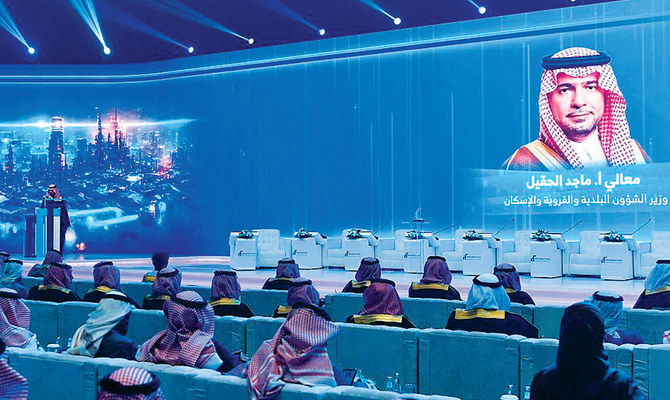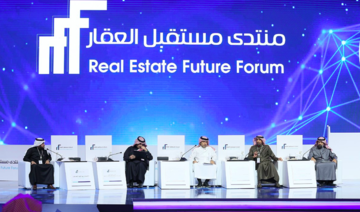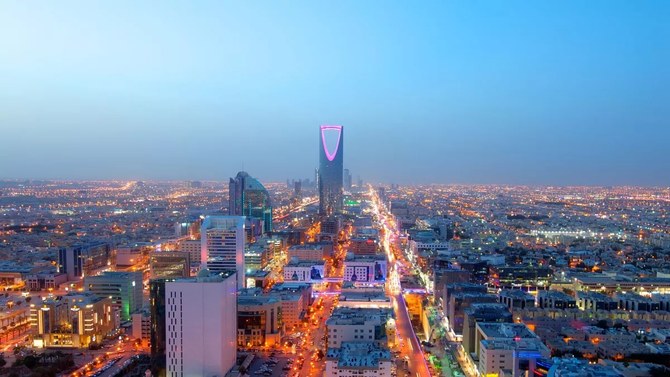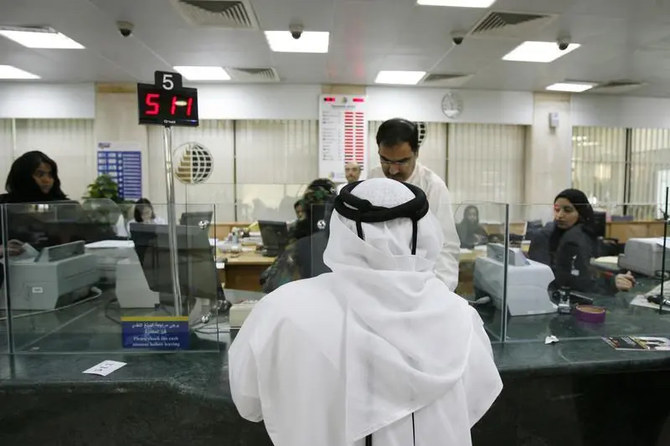RIYADH: Setting the tone for the shape of things to come, 2023 began on a high note for the real estate industry with deals worth more than SR10 billion ($2.66 billion) signed on the opening day of the Real Estate Future Forum, which was held in Riyadh from Jan. 23-25.
The strong start to the year comes in the wake of a report published by PwC Middle East in December which noted the Kingdom has made remarkable progress in transforming its housing sector in the past decade.
The government’s robust policies and initiatives, including the activation of numerous finance products, is propelling the sector forward, addressing the key challenges faced by the housing market, and making home ownership a possibility for new generations of Saudis, it said.
The positivity was echoed by Faisal Durrani, head of Middle East research, at global real estate consultancy Knight Frank.
“We are tracking nearly 555,000 residential units that are due to be delivered around the Kingdom by 2030, with Riyadh alone set to see an additional 200,000 homes as the Saudi capital gears up for a 127 percent rise in its population to 17 million by the end of the decade,” he told Arab News.
He did, however, add a note of caution, saying: “Despite the volume of new homes planned, we forecast a national deficit of almost 1.5 million units. The caveat, of course, is around building suitable stock to satisfy the exceptional levels of current and future demand.”
With such expansion on the horizon, It is hardly surprising then that there is keen interest from investors, who are looking to capitalize on the strong outlook for the real estate sector in the Kingdom.
Bahrain-based Investcorp, for instance, announced earlier in January that it would invest as much as $1 billion in Saudi real estate over the next five years.
“Saudi Arabia’s real estate market has been undergoing a rapid transformation as the Kingdom’s appetite for megaprojects and economic prosperity grow under the Vision 2030 agenda,” Yusef Al Yusef, head of private wealth in the GCC for Investcorp, told Arab News.
Changing face of Saudi Arabia
A report from S&P Global published in December last year set out Saudi Arabia’s real estate ambitions as part of its Vision 2030 program for economic diversification.
According to the report, the Kingdom has $1 trillion slated for real estate and infrastructure projects, with at least eight new cities planned predominantly along the coast of the Red Sea, with more than 1.3 million new homes by end-2030.
Predictably, Saudi Arabia has remained the largest construction market in the Middle East region, with a share of $31 billion out total $87 billion worth of awarded projects during the first 10 months of 2022, according to Rani Majzoub, head of real estate advisory at KPMG Professional Services.
“While having undisputed leadership in the region in terms of market size, Saudi Arabia is also becoming one of the leading countries in terms of real estate innovation at a global scale,” he told Arab News.
“The Kingdom is set to shape its construction and development at an unprecedented pace – with the share of construction targeted to reach 8.8 percent of nominal gross domestic product as per Vision 2030. Currently, the share of construction is estimated at 6.4 percent of GDP which equates to an annual spend of SR197 billion,” Majzoub added.
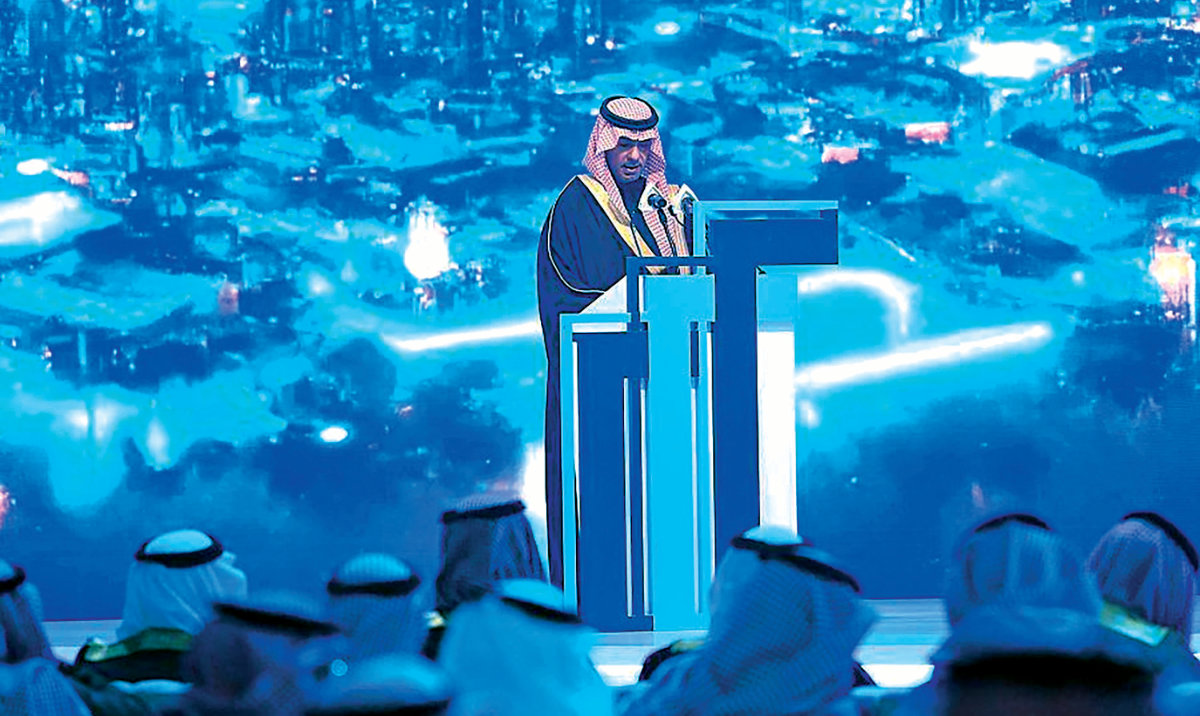
According to KPMG’s estimates, the share of construction is expected to reach SR382 billion by 2030, owing both to GDP growth and increase in GDP contribution by the construction sector.
What differentiates Saudi Arabia, according to Majzoub, is the large number of megaprojects that are set to be developed in the next decade, which will contribute to the digital transformation of the cities with heritage and culture at their core.
A few examples include Jeddah Central Development, Makkah Heritage District, Diriyah Gate Development, Qiddiya, King Salman Park, Riyadh Sport Boulevard, NEOM, Red Sea Project and Soudah Development.
Most of the megaprojects, which are set to come to fruition in the next decade, will change not only the Kingdom’s landscape but, in many cases, the day-to-day lives of residents, too.
“The Iskan program, which aims to increase home ownership for Saudi families to 70 percent by 2030, is tasked with providing the necessary infrastructure for housing and encouraging landlords to develop real estate projects throughout Makkah, Jeddah and Dammam,” said Sapna Jagtiani, director, S&P Global Rating.
“Although the white land tax (on undeveloped land) has been in effect for a few years with some success, the government has launched the second phase of its Idle Land Program to ensure fair competition and a balance between supply and demand for modern estates,” added Ilya Tafintsev, associate, S&P Global Ratings.
“The Kingdom is currently undergoing a major transformation, with Vision 2030 as an ambitious yet achievable mission,” Mohammed Al-Otaibi, CEO of Ajdan Real Estate Development, told Arab News.
“We believe that the development projects will be instrumental in positioning Saudi Arabia as a leading tourism, entertainment, and real estate destination to rival the likes of Dubai. At Ajdan, we are partnering with some of the world’s leading designers, architects, brands and operators to really elevate the offering in Saudi Arabia.”
“As Saudi Arabia continues its ongoing economic growth, the demand for residential properties will also increase,” Imad Shahouri, PwC’s Middle East consulting real estate cluster leader, told Arab News.
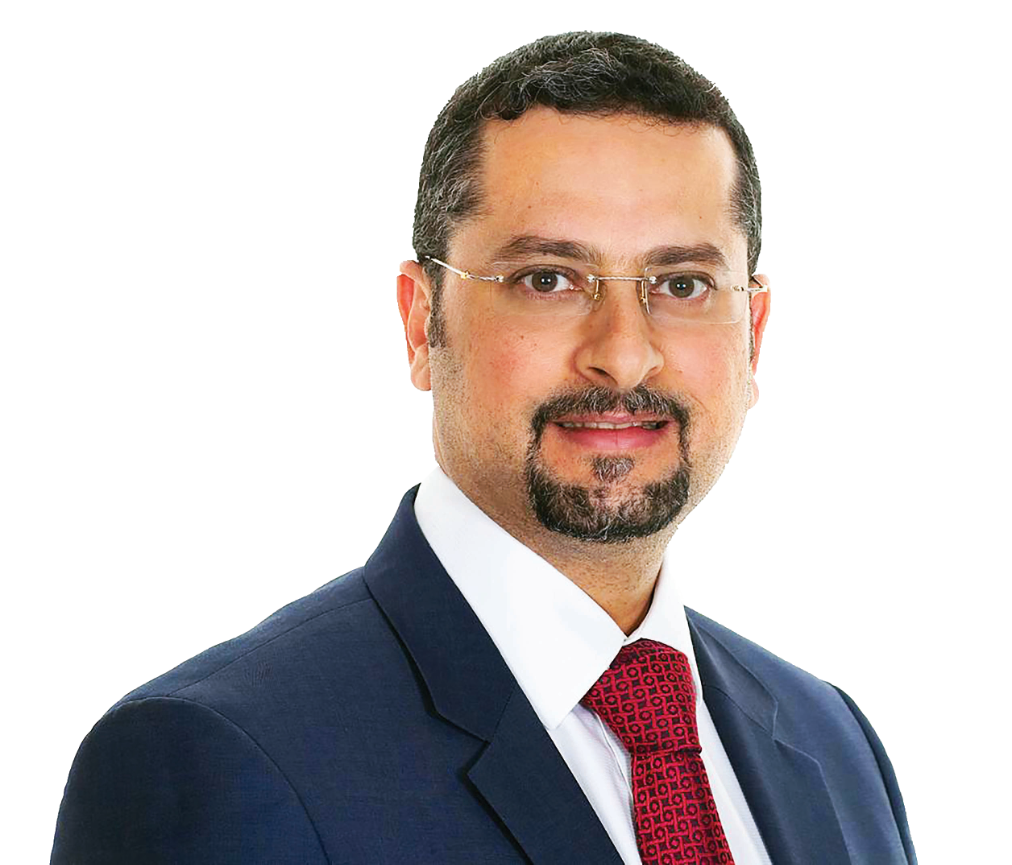
Saudi Arabia has remained the largest construction market in the Middle East region, with a share of $31 billion out of a total $87 billion worth of awarded projects during the first 10 months of 2022.
Rani Majzoub, head of real estate advisory at KPMG Professional Services
“The Kingdom has put forward large-scale national programs as part of the Saudi Vision 2030, including The Housing Program, which aims to provide housing solutions enabling Saudi nationals to own and benefit from suitable houses. The expanding project has set a mission to improve housing conditions and quantity for current and future generations.”
“In alignment with Vision 2030, the Housing Program will provide housing units for Saudi families, with an expected 70 percent homeownership among Saudis by the end of 2030,” Shahouri added.
“The residential sector’s demand is driven by Vision 2030’s target of increasing home ownership to 70 percent by end of the decade and, as of mid-2022, the Saudi Real Estate Refinance Co. estimates home ownership to have reached 60 percent,” Junaid Ansari, head of investment strategy and research at Kamco Invest, informed Arab News.
“On a broader level, we feel that there is a wait-and-see approach being adopted in some cases, where many potential buyers are waiting the delivery of new major developments,” Pedro Ribeiro, general manager of CBRE Saudi Arabia, told Arab News.
“Many of these developments will help provide much-needed supply to market but also, more importantly, the required quality and property configuration at affordable price points. This trend is not limited just to Riyadh but also to the likes of Jeddah, where we have seen a number of notable masterplans being launched.”
All eyes on Riyadh
While numerous projects are slated for existing main cities the big question is whether the government can meet its ambitious target to make Riyadh one of the 10th largest economies in the world by 2030, with its population projected to exceed 15 million by 2030.
“We are optimistic that Riyadh will continue to grow at an impressive rate – the demand is there and there is no shortage of industry professionals well equipped to meet the demand,” said Al-Otaibi.
“At Ajdan alone, we are involved in a number of new residential projects in Riyadh that will contribute significantly to the city’s economy, not to mention many other developers both in the private and public sector that will be delivering mega-scale projects in and around Riyadh, so we are confident that the government will reach its goal.”
“As ambitious as it sounds, this aim requires significant effort on the economic, regulatory and development fronts. So far, the government has not only shown determination but has also made the required effort and implemented innovative ideas to accomplish the challenge,” Majzoub said.
He added: “The government is focused on increasing the participation of the private sector from 40 percent to 65 percent and raising the contribution of small and medium enterprises to the gross domestic product.
“Regulatory steps such as reducing the requirements of bank guarantees for developers, the relocation of international company regional headquarters to Riyadh, and expansion of the industrial areas are some of the key measures taken by the government to drive the requisite growth.”
“Megaprojects like the Metro will enhance mobility and allow the city to expand and create more developments on the outskirts like Diriyah,” Majzoub explained. “On the other hand, lifestyle projects like Diriyah, King Salman Park, Qiddiyah, etc. are set to become a reflection of futuristic living which will attract expats and locals from other parts of the country.”
“The current growth trajectory, announced mega projects, government plans and regulations, and the response of the private sector all show positive signs and increase the likelihood of achieving the ambitions for Riyadh,” he concluded.
“This transformational change in infrastructure and cross-cultural engagement, while focused in Riyadh, is not exclusive to it,” summed up Shahouri. “Other major cities like Jeddah are also getting a makeover in a large-scale redevelopment effort. For instance, the Kingdom will invest $20 billion to revamp and revitalize about 5.7 million sq. m. of picturesque waterfront in the Jeddah Central Project. Similar initiatives are underway in Madinah as well.”



